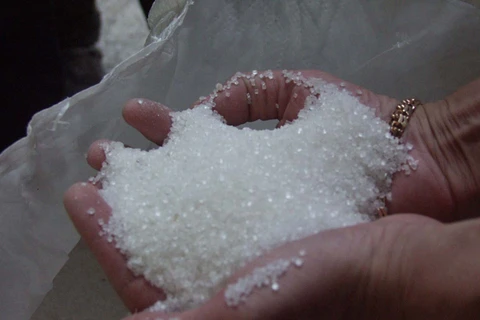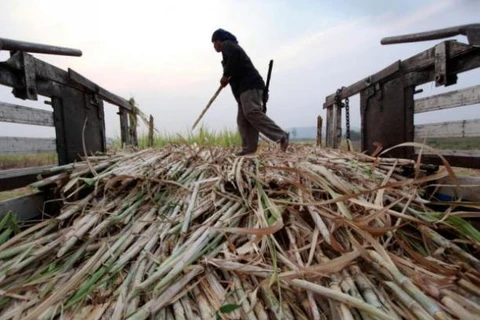Bangkok (VNA) – Thailand, the world’s second biggest sugar exporter after Brazil, will overhaul its sugar production and distribution system for the first time in the past three decades, according to the Office of Cane and Sugar Board (OCSB).
Thailand made the decision after being accused by Brazil at the World Trade Organisation (WTO) of giving “subsidies” to sugar producers that it says has dragged down global price and allowed Thailand to win a larger market share in the international market.
The OCSB said the country will change its 70:30 profit sharing system in place since 1984 by canceling its quota system and floating domestic sugar prices. The plan has been completed and will be submitted to the Cabinet in the next few weeks, said OCSB Secretary General Somsak Jantararoungtong.
The 70:30 profit sharing system between sugar millers and cane growers provides monetary support from the country’s Cane and Sugar Fund for local cane producers.
Thailand’s plan is aimed at changing the three-quota system to prevent sugar shortages. Quota A sets aside around 2.2-2.5 million tonnes of sugar for domestic consumption, quota B for the state-run sugar exports and quota C for exports by private sugar producers.
Besides, the Thai government will also apply floating retail prices in the domestic market. In order to keep food prices and inflation rate under control, the government will maintain a ceiling price for sugar, with the retail price fixed at 23.4 THB (0.6 USD) per kilo. The ceiling price is only applied when there is a sugar shortage.
The US Department of Agriculture (USDA) has forecasted that global sugar consumption in 2016/17will reach a record of 174 million tonnes, with production at 169 million tonnes.-VNA

Brazil accuses Thailand over sugar subsidies
Thailand is likely to face a challenge at the World Trade Organisation (WTO) from Brazil over subsidies for sugar producers, according to local media.





















